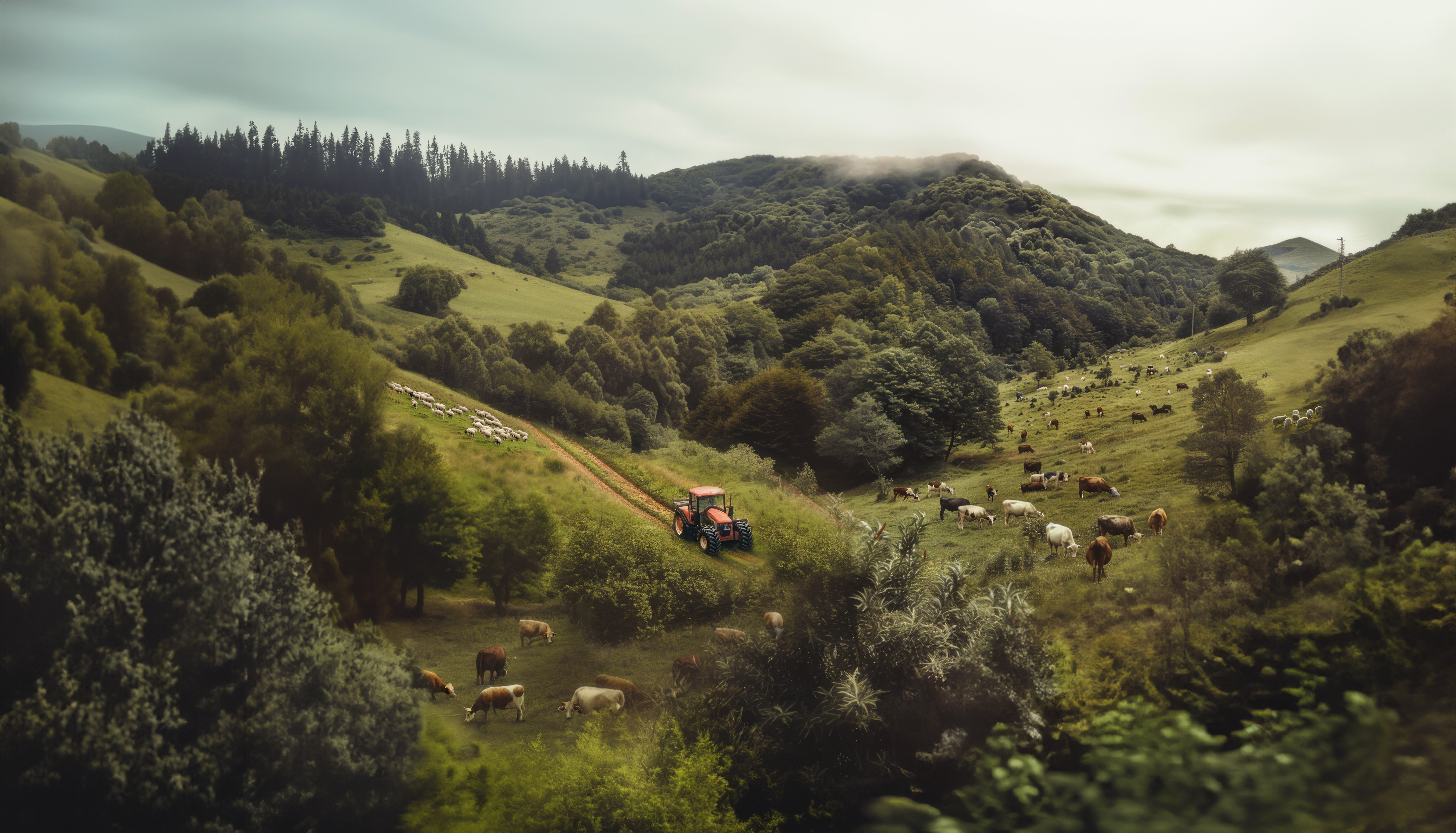Taking risk out of next generation silvopastoral systems
This is a three-year research programme (August 2024 – June 2027) led by Scion and funded by the Ministry for Primary Industries.
The project aims to co-develop place-based, multifunctional agricultural and forestry systems to address climate, environmental and economic pressures. Overall, the project will lead to a resilient and inclusive, intergenerationally sustainable rural land use sector in New Zealand which supports a thriving economy and society.
Background
Agroforestry blends agriculture and forestry to create integrated land use systems. Agroforestry can mitigate the pressures climate change is placing on animal welfare, natural capital and the flow of ecosystem services, enhancing climate resilience.
Silvopastoral systems are the form of agroforestry involving livestock grazing on pasture.There has been little new research on silvopastoral systems in New Zealand for more than 30 years and there is a gap in current knowledge and lack of demonstrated systems that are adapted, or can be adapted, to climate change impacts. This project aims to change that.
While the benefits of trees for carbon sequestration and biodiversity are well-recognised, more could be learned about the impact on things like farm productivity, nutrient management, animal welfare, sediment run off, and benefits for farm greenhouse gas emissions.
We now have the technology and capability to investigate the wide range of outcomes silvopastoral systems provide.

The process
To ensure resilient, productive landscapes into the future, systems integrating trees, animals and understory need to be developed.
Climate change impacts require agricultural systems to respond in ways that create greater resilience while maintaining and enhancing environmental and economic outcomes, all with a focus on animal welfare.
This research project, conducted in partnership with Pāmu and Māori partners Orete 2 and Other Blocks Incorporated, aims to understand what enables new silvopastoral systems that create a range of benefits and ecosystem services at a range of sizes.
During this project, new field trials will be designed, implemented and adapted to de-risk the environmental, economic, cultural and social benefits identified by key project partners and improve animal welfare outcomes.
Co-design
- Design workshops will be held to gain input from landowners about what benefits silvopastoral systems could provide. This will ensure outcomes from the trials reflect current and future aspirations for the landscape, and the developed systems can feasibly be implemented by landowners.
- The team will build strong, collaborative relationships with landowners and research partners.
Field trials
- Long-term field trials will be established through either planting trees into established pastoral systems or modifying existing stands of trees within pastoral systems.
- Information about a full range of factors will be collected to provide a holistic understanding of the impacts and benefits of the silvopastoral systems. Sensors will collect information about trees, understory, and animals. Cultural, economic, environmental and social outcomes will be monitored.
- Landowners and stakeholders will be continually engaged with and systems and trials refined based on their experience and outcomes.
- The field trials will demonstrate novel silvopastoral systems. The benefits from these systems and their overall resilience to climate change will be quantified.
The findings
- Evidence that hopefully encourages wider investment in next generation silvopastoral systems will be collected and communicated.
- We will develop culturally appropriate guidance for integrated agricultural and forest systems and climate change adaptation for Māori enterprises.
- We will also develop climate change adaptation guidance for farming enterprises to enable integrated agricultural and forest systems.
- There are hopes the results can be integrated into tools used to assess and manage the environmental impacts of common agricultural practices.
Benefits to New Zealand
Short-term this will lead to the availability of new systems infrastructure to promote farming and forestry practice change.In the medium term, we will develop methods for quantifying the benefits of silvopastoral systems and incorporating them into farm accounts. Long-term, local communities will have increased confidence in the future of silvopastoral systems, the public will have greater confidence in the intergenerational sustainability of New Zealand agriculture and the government will have greater confidence in the ability of the farming community to adapt to climate change and other global pressures.
Other benefits may include:
Improved environmental performance
This will result in improved water and soil quality, reduced erosion, improved waste management, more efficient water usage, reduced emissions and chemical use, climate change mitigation and prevention, effective mitigation of pests and diseases and genetic improvement.
Economically prosperous food and fibre industries
Resulting in lower impact land use, higher productivity, increased farm gate returns and reduced production costs, new products, higher value sector growth, improved market access, new high-value markets, right-sized labour supply and improved capability.
Improved animal welfare
Elevated environmental temperatures can negatively affect livestock. Silvopastoral systems can create greater resilience while maintaining and enhancing environmental and economic outcomes with a focus on animal welfare.
Thriving and sustainable rural communities
Leading to improved mental health and worker safety, more resilient communities, improved animal health, regional employment opportunities and managing and coping with the impact of climate change.
Innovative, world-leading and future-ready primary sector
This could lead to increased R&D investment and capability, improved information and insights, and agility to respond rapidly to changing needs.
Collaborators
The project team:
- Scion (project lead)
- Pāmu
- Orete No.2 and Other Blocks Incorporation
- AgResearch
The project is funded by the Ministry for Primary Industries through the Sustainable Land Management and Climate Change Collaborations pathway.
Contact
Yvette Dickinson, Portfolio Leader - Designing forests - Mahi tahi whaihua

